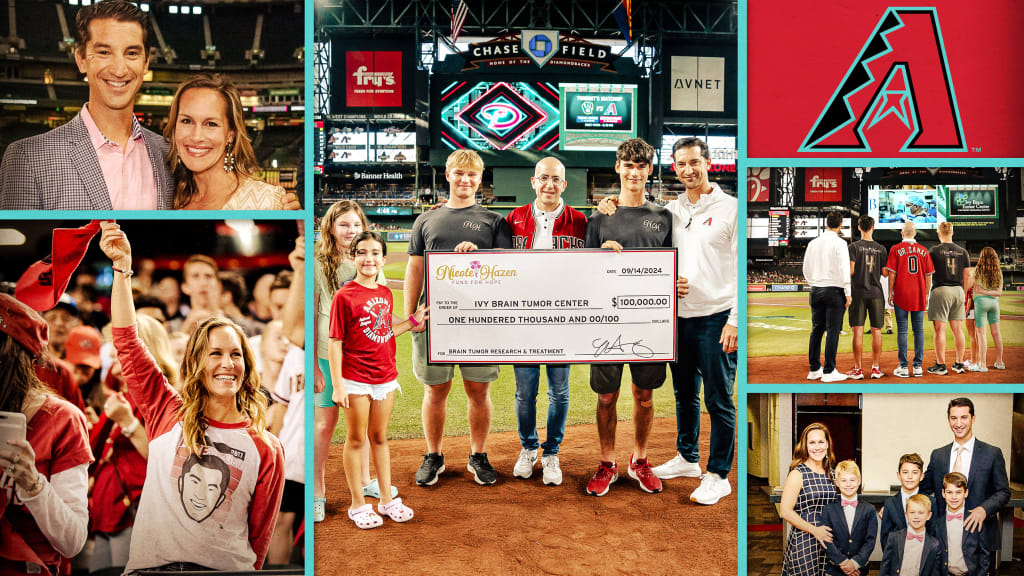
Mike Hazen had just hung up the phone, having spoken with me about the Diamondbacks’ upcoming “Brain Tumor Awareness Night,” a pregame event Tuesday night at Chase Field in which the Ivy Brain Tumor Center that treated his late wife’s fatal glioblastoma will receive a donation from the Nicole Hazen Fund for Hope.
The subject of glioblastoma and brain cancer, in general, is personal for Hazen, the D-backs’ general manager, as it is for me. My brother was diagnosed with glioblastoma in 2011. Miraculously, he is one of far too few survivors of this vicious, fast-growing and aggressive brain tumor, which, according to the National Brain Tumor Society, strikes more than 10,000 people in the United States each year, has a five-year survival rate of only 6.9 percent and has an average survival time of only eight months.
Hazen and I talked about how neither of us had heard of glioblastoma prior to it affecting a loved one and how, once we were aware of it, we began to see it everywhere.
Then, minutes after we hung up, Hazen texted me a screenshot. He had just come across a news article revealing singer Michael Bolton’s battle with glioblastoma.
“When you deal with it, you realize how devastating it is,” Hazen said. “Now I can’t not hear about it or see it. I don’t know if I would have paid attention to it if I hadn’t experienced it.”
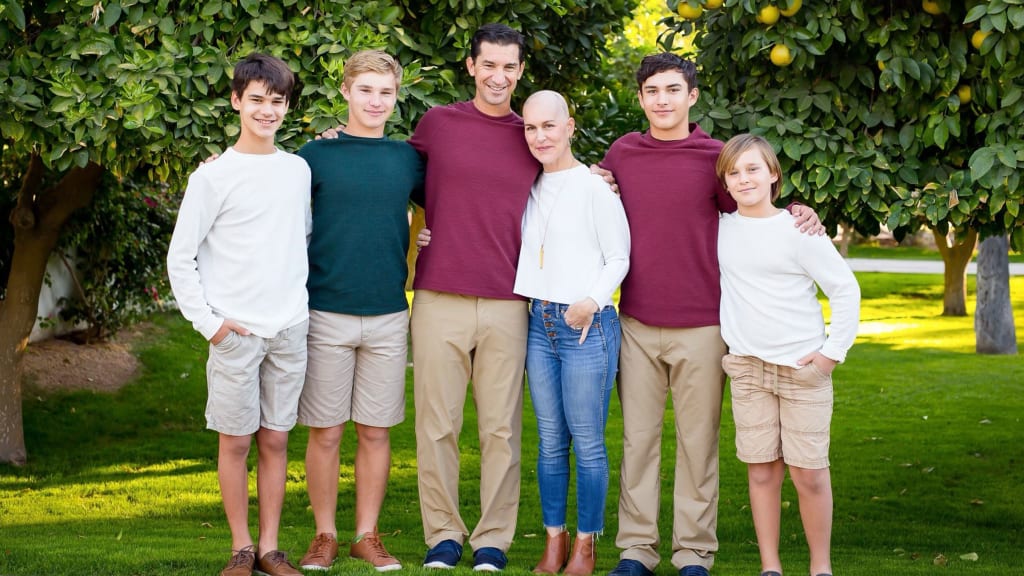
Before Nicole passed away in August 2022, Mike made two promises to her -- to ensure she would never be forgotten, and to do everything he could to make sure other families don’t have to go through what the Hazens went through during Nicole’s cancer battle of two-plus years.
Memories of Nicole are secure in the lives of Mike and the couple’s four sons. And during the D-backs’ incredible run to the World Series in 2023 and countless times since, her presence has been deeply felt.
As for helping other families affected, the Nicole Hazen Fund for Hope is definitely doing its part to aid this greatly underfunded cause.
Since it was established in 2021, the fund has raised more than $2 million -- much of which has come from the baseball community – to support the Phoenix-based Ivy Brain Tumor Center’s clinical operations and laboratory infrastructure necessary for conducting early-phase clinical trials.
That includes the study of niraparib, a drug developed by United Kingdom-based biopharmaceutical company GSK. In less than two years, the Ivy Center tested niraparib with about two dozen patients and provided compelling proof-of-concept evidence of the drug as a new treatment for glioblastoma, helping to swiftly advance it toward a Phase 3 trial, which will enroll 450 participants at more than 100 clinical sites across 11 countries.
“That’s a process that often takes a decade in drug development, and it took less than two years in this process,” said Dr. Nader Sanai, director of the Ivy Center. “So this is how you accelerate innovation. This is how you find therapeutic options for patients that don't have a decade to wait, in most cases.”
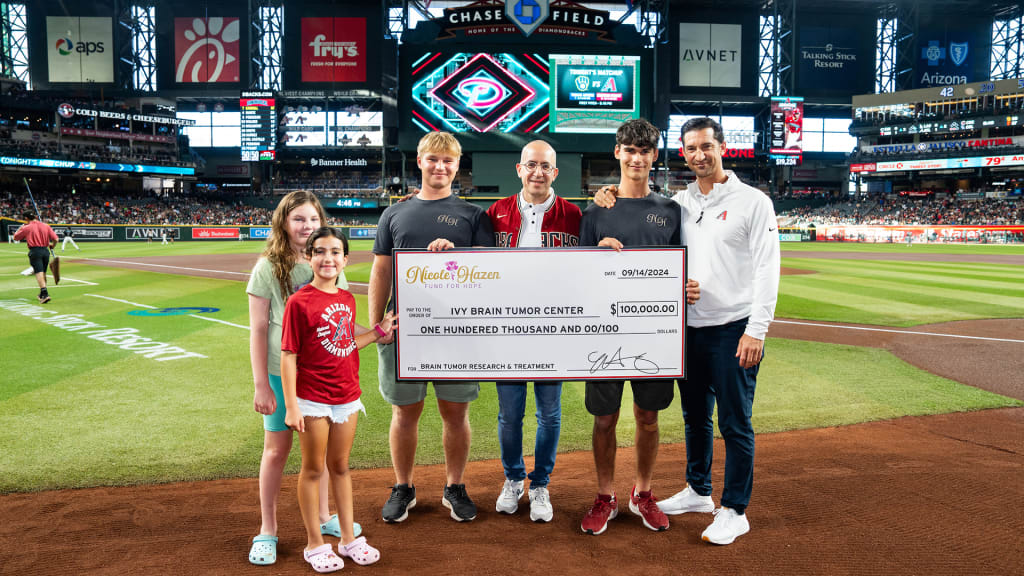
Sanai said that because glioblastoma is a comparatively rarer disease, it does not get the same sort of advances in medicine that we see in other cancers that are more prevalent. But a successful Phase 3 clinical trial for niraparib could result in the first FDA approval of a life-prolonging drug for glioblastoma.
That would be a historic milestone for this patient population.
Thanks to the support of philanthropic partners like the Nicole Hazen Fund for Hope, the Ivy Center -- which Sanai founded in 2018 -- has provided experimental therapies for patients for whom established clinical trials have not been effective.
“We think that's the way you go about finding effective therapies,” said Sanai, “by kind of going into uncharted territories.”
Nicole ran out of time. The location and aggression of her particular tumor proved to be too much for her body to bear. She was 45 years old.
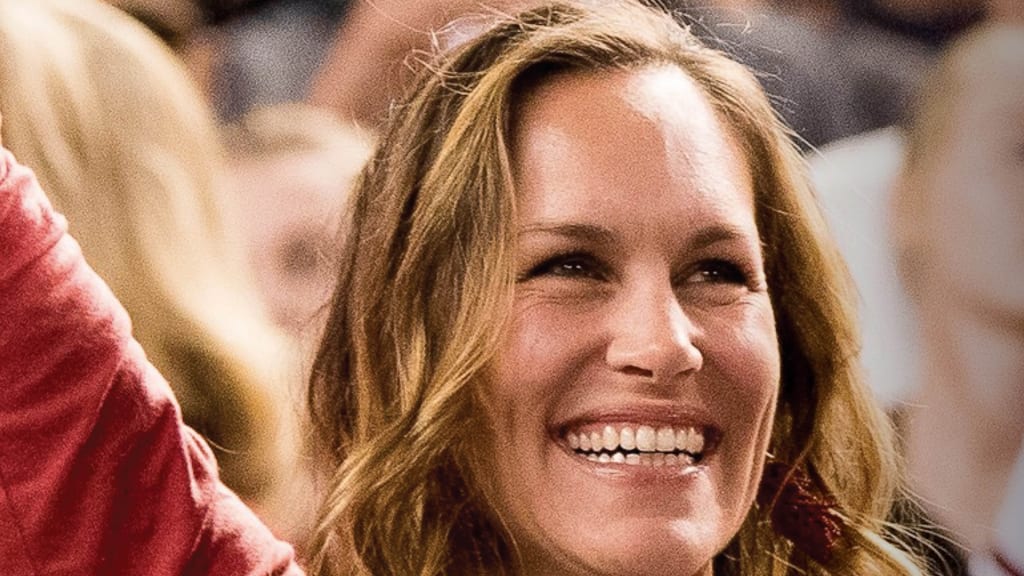
But Nicole’s fighting spirit lives on through her fund, which is making an impact on patients like Jeremy Gibbons, a Peoria, Ariz., fire chief whose life changed in an instant last December when he was diagnosed with a Grade 3 glioma brain tumor after suffering two seizures.
Gibbons, who has since completed radiation therapy and is currently undergoing chemotherapy, will throw out a ceremonial first pitch prior to Tuesday’s game against the Mets.
Just like Nicole, Gibbons was hit out of nowhere with brain cancer.
“What’s so terrifying about it is that, with other cancers, there could be environmental risk factors, lifestyle risk factors, genetic inherited risk factors,” Sanai said. “[Brain cancer] doesn’t really seem to play by any of those rules. It strikes somewhat haphazardly, and oftentimes, it strikes in patients that are otherwise healthy, enjoying their lives and have no reason to have a concern about something like this.”
Once it strikes you or someone you love, brain cancer becomes personal, and charities like the Nicole Hazen Fund for Hope become more meaningful.
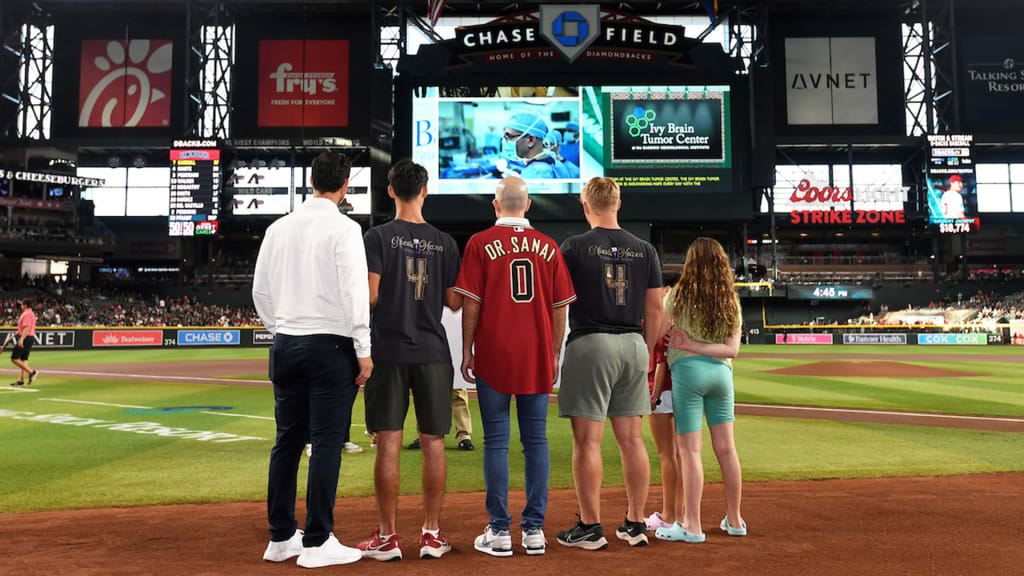
But Hazen hopes his story, his platform and his D-backs’ willingness to champion the fund and the Ivy Center on Tuesday can inspire the support of even those who have never been affected by this disease.
Hazen knows that when we give to various charities, we don’t always hear about where that money went or what it accomplished. But as Dr. Sanai can attest, the Nicole Hazen Fund for Hope is making an impact.
“One of the challenges with this disease is, because there are very few survivors, there's not a huge advocacy around it,” Sanai said. “You know, you don't see pink ribbons for glioblastoma, right? So having a spokesperson like Mike really makes a huge difference, and I think our patients and the global patient community are grateful for that.”
Hazen said staying involved in that community has helped guide him through his pain.
“If there’s a chance of giving the hope of life in years as opposed to months when people are stricken,” he said, “when it hits you, you’ll realize how important that time window is.”
To make a donation to the Nicole Hazen Fund for Hope, please visit this link.
